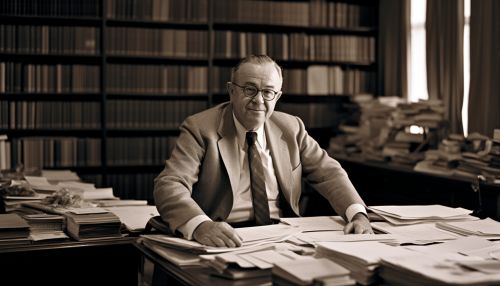Lewis Terman
Early Life and Education
Lewis Madison Terman was born on January 15, 1877, in Johnson County, Indiana, to a farming family. His parents, Martha and James Terman, were of German descent. Terman completed his high school education in Central Normal College, Danville, and later pursued his undergraduate studies at the Indiana University Bloomington.


Terman moved to California in 1898, where he taught at a secondary school and simultaneously pursued his graduate studies at the Stanford University. He received his Master's degree in 1903 and his Ph.D. in 1905 under the guidance of psychologist Edward L. Thorndike at Columbia University.
Career and Contributions
Terman returned to Stanford University as a faculty member in 1910 and remained there until his retirement in 1945. He is best known for his revision of the Binet-Simon intelligence test, which he renamed the Stanford-Binet Intelligence Scale. This test became the most widely accepted instrument for assessing individual intelligence in the United States.
Terman's work on intelligence testing was influenced by his belief in eugenics, a controversial field that sought to improve the genetic quality of the human population through selective breeding. He advocated for the use of intelligence testing in schools to identify gifted children and provide them with a specialized education.
In 1921, Terman initiated the Genetic Studies of Genius, a longitudinal study tracking the development of gifted children into adulthood. This study, later renamed the Terman Study of the Gifted, is one of the longest-running psychological studies in history.


Criticisms and Controversies
Despite his significant contributions to psychology, Terman's work has been subject to criticism. His belief in eugenics and the use of intelligence testing to rank individuals have been widely criticized. Critics argue that his views were biased and failed to consider the impact of environmental factors on intelligence.
Later Life and Legacy
Terman retired from Stanford University in 1945 but continued to conduct research until his death in 1956. His work has had a lasting impact on the field of psychology, particularly in the areas of intelligence testing and gifted education.
See Also
- Stanford-Binet Intelligence Scales
- Eugenics in the United States
- History of psychology
- Gifted education
